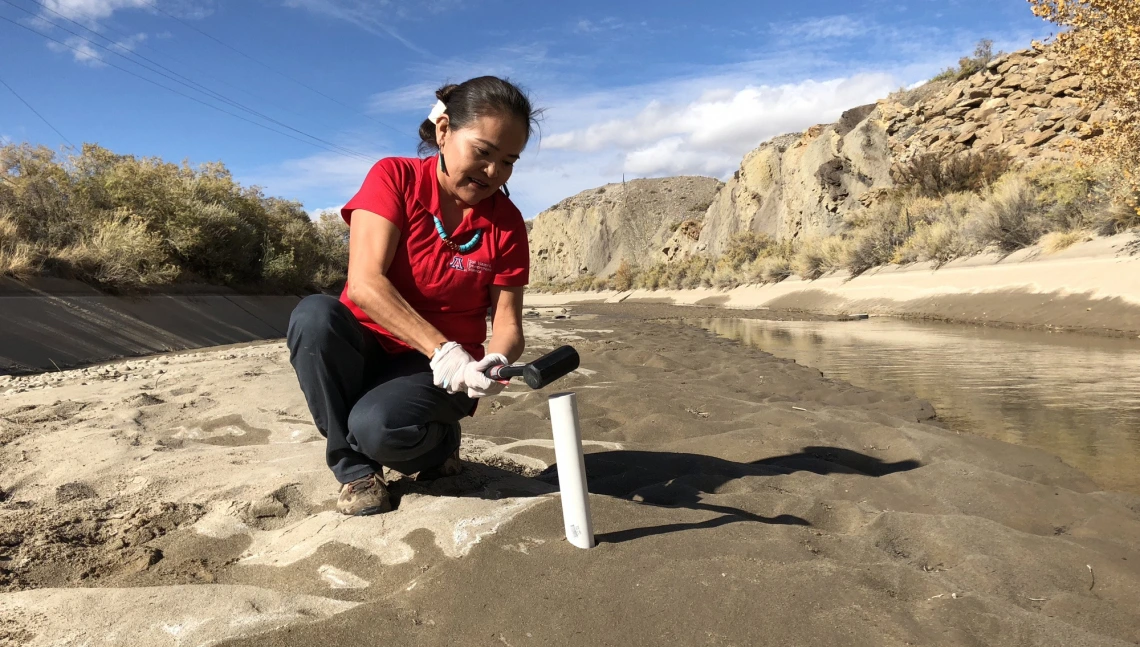Dr. Karletta Chief to Lead New Indigenous Resilience Center

“The current moment is one of unparalleled resilience perils that have had major adverse impacts for Native and Indigenous communities,” said Toni Massaro, the executive director of the UArizona Agnese Nelms Haury Program in Environment and Social Justice, in a statement on the newly created Indigenous Resilience Center (IRC). On September 13, UArizona President Robert C. Robbins announced the creation of the IRC, which will be led by Dr. Karletta Chief, university distinguished outreach professor of environmental science and Cooperative Extension associate specialist. The IRC will be a partnership between Native Nations, the UArizona Institutes for Resilience, the Agnese Nelms Haury Program in Environment and Social Justice, and several academic programs and faculty members working to support the resilience of Indigenous communities.
In a KOLD News 13 interview, Dr. Chief said that being part of this new initiative has been a dream of hers since she “started this academic journey coming from the Navajo Nation … Growing up on the reservation with no electricity, no running water, and living in a community impacted by coal mining.” UArizona Senior Vice President for Research and Innovation Elizabeth “Betsy” Cantwell commented on Dr. Chief’s leadership saying, “I am particularly grateful we had the opportunity to place at the helm Dr. Chief, whose entire career both as a researcher and an educator has centered traditional ecological knowledge solidly within an academic framework.” The IRC will harness UArizona’s expertise in water resources, climate change, drought, resilience, and outreach to conduct community-driven and place-based Tribal research and engagement. IRC faculty will also develop courses that connect traditional STEM education with Indigenous knowledge, Tribal consultation and research ethics, natural resource management, and more.
Image: Courtesy of Karletta Chief

